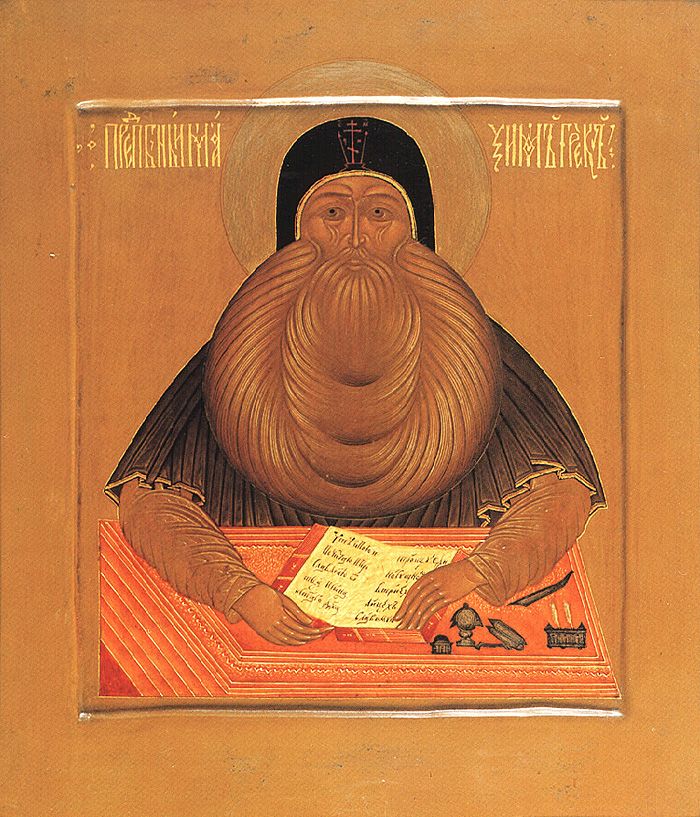Non-possessiveness is a trend in the Orthodox Church that appeared in the late XV - early XVI centuries. The founders of the current are the monks of the Volga region. That is why in some literature it is referred to as the "teaching of the Trans-Volga elders." The conductors of this movement preached non-possession (selflessness), urged churches and monasteries to abandon material support.
The essence of non-possessiveness
The essence of non-possessiveness is the highlighting of the inner world of a person, his spiritual strength, and not material wealth. It is the life of the human spirit that is the basis of existence. The followers of the doctrine are sure: improving the inner world of a person requires constant work on oneself, the rejection of certain worldly goods. At the same time, non-possessors advised not to go to extremes, considering the complete detachment from the outside world as unacceptable as living in excessive luxury. Vow of non-possessiveness - what is it and how can it be interpreted? Giving such a vow, the monk refuses excessive luxury and unclean thoughts.
In addition to ideological ideas, the followers of non-possessiveness put forward political views. They opposed the fact that churches and monasteries owned land and material values. They expressed their views on the state structure and the role of the church in society.
The ideas of non-possessiveness and its ideologists. Neil Sorsky
Rev. Neil Sorsky is the main ideologist of non-possessiveness. Little has come to our time about his life. It is known that he spent several years on the holy Mount Athos, studying the life of the holy fathers. With his heart and mind, he turned this knowledge into a practical guide to his life. He later founded a monastery, but not an ordinary one, but following the example of Mount Athos. Companions of the Nile of Sorsky lived in separate cells. Their teacher was a model of industriousness and non-possessiveness. This implied the instruction of the monks in prayers and spiritual asceticism, for the main feat of the monks is the struggle against their thoughts and passions. After the death of the venerable power, he became famous for many miracles.
Rev. Vassian
In the spring of 1409, a noble prisoner, Prince Vasily Ivanovich Patrikeev, was brought to the Kirillov Monastery. His father, Ivan Yurievich, was not only the head of the boyar duma, a relative of the prince, but also his first assistant. Vasily himself also managed to show himself as a talented governor and diplomat. He participated in the war with Lithuania, and then in the negotiations, which allowed to conclude a profitable peace.
However, at one point the prince’s attitude towards Vasily Patrikeev and his father changed. Both were charged with high treason. The intercession of the Moscow Metropolitan saved them from the death penalty - right in the shackles of both of them they were forcibly tonsured as monks. Father was taken to the Trinity Monastery, where he soon died. Vasily was imprisoned in the Kirillo-Belozersky monastery. It was here that the newly-made monk met Neil Sorsky and became an ardent follower of his teachings of non-possessiveness. This became the determining factor in the rest of Vasily Patrikeev's remaining life.
Rev. Maxim the Greek
On February 3, the Russian Orthodox Church commemorates the Monk Maxim the Greek. Mikhail Trivolis (that was his name in the world) was born in Greece, spent his childhood on the island of Corfu, and left for Italy in the year America was discovered. Here he entered as a monk in a Catholic monastery. But realizing that Catholic scholarship provides only an external, albeit useful school, he soon returns to his homeland and becomes an Orthodox monk on the holy Mount Athos. In the distant Muscovy, Vasily III is trying to understand the Greek books and manuscripts of his mother. Basil appeals to the Patriarch of Constantinople with a request to send an intelligent translator. The choice falls on Maxim. He travels thousands of miles to cold Russia, not even suspecting how difficult his life will be there.

In Moscow, Maxim the Greek also translates the “Interpretation of the Psalms” and the book “Acts of the Apostles”. But the Slavic language is not native to the translator, and annoying inaccuracies creep into the books, which the spiritual authorities will soon learn about. The church court imputes these inaccuracies to the translator as damage to books and exiles him to the prison tower of the Volokolamsk monastery. For more than a quarter century persecution will last, but it is loneliness and confinement that will make Maxim the Great a great writer. Only at the end of his life was the monk allowed to live freely and removed the church prohibition from him. He was about 70 years old.